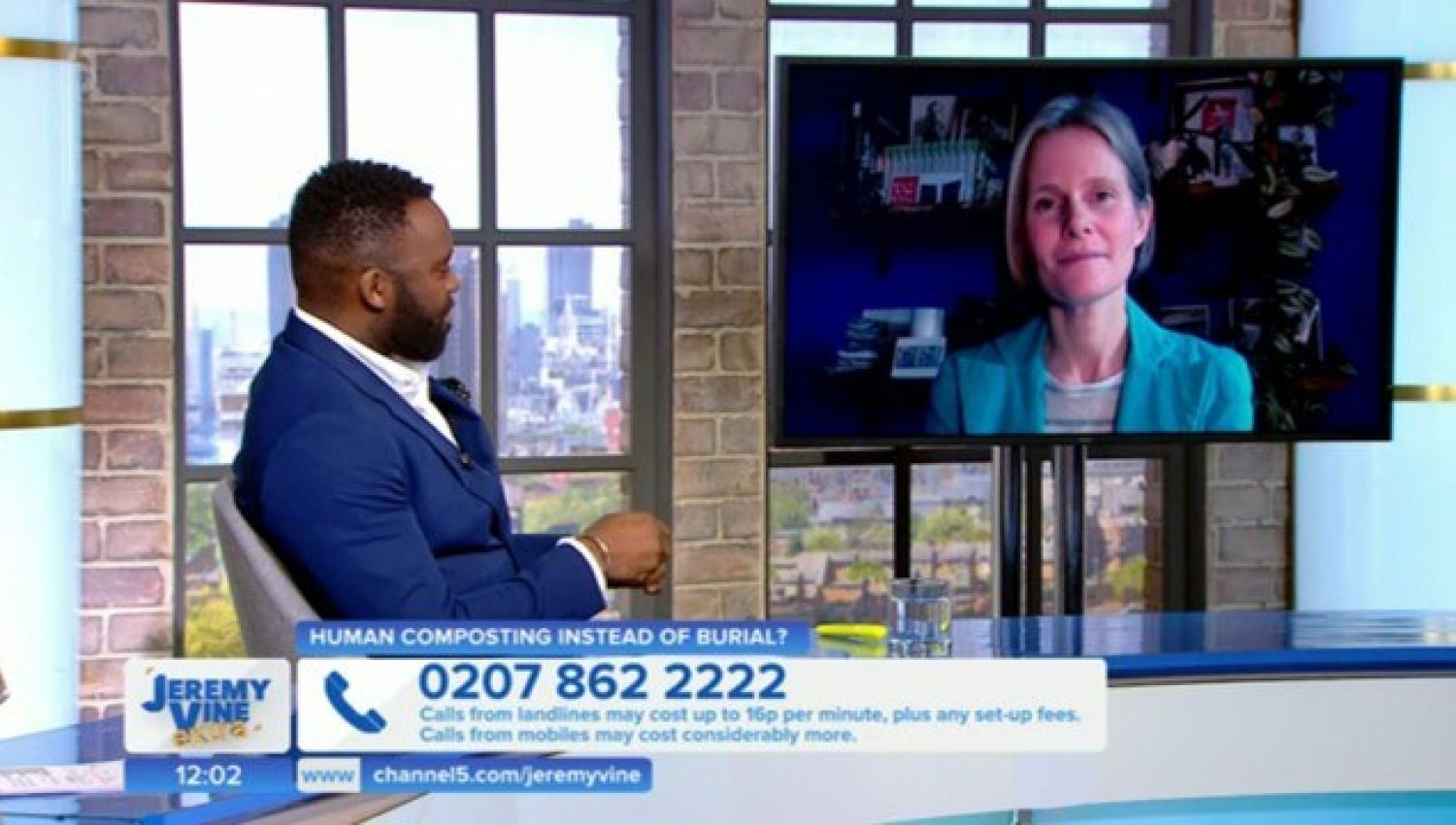Four minute read
At Poppy’s, we create conversations about death. Not because we’re morbid or want to shock, but because there are so many benefits in talking openly and honestly about death, dying and funerals.
Knowing what to expect
First of all, sharing information about what to expect makes you less afraid.
If you know that the change in breathing you hear when someone nears the end of their life is normal for a dying person, then you won’t be so alarmed. If you know what someone looks like after they’ve died, then you might feel more comfortable visiting and spending time with them.
Talking about death also normalises it.
After all, death is the most normal life experience. At some point, all of us will be bereaved, will experience loss and will ultimately die.
If we are able to talk about this before we’re in crisis, then we have time to work out what’s important to us, and what we’d like for ourselves or those close to us when the time comes.
Broadening the conversation
We have these conversations one by one — when someone pops into our high street shop in Sheen or phones our HQ in Lambeth Cemetery, Tooting.
And we have them with larger groups too — when we run a death café or training session or when we open up our mortuary to the public on an open day.
We also love having these conversations virtually with the people who read our blogs or follow Poppy’s on social media.
But how can we open up a wider conversation? With people who don’t know who we are, don’t seek us out or who don’t even feel like death is something they are allowed to think or talk about?
That’s where working with the media comes in.
Why we talk to journalists
Right from the first days of Poppy’s, we’ve been keen to talk to journalists about what we do and why, because we know that they can reach audiences which we can’t.
We recognise the important role that the media plays in exposing bad practice and motivating people to demand better. Watching media exposes about the funeral sector inspired Poppy to found the business back in 2012.
However, as well as revealing what’s gone wrong, it’s also crucial for people to see what excellent care looks like, to raise their expectations. Whether it’s newspapers, podcasts, TV interviews or features, we’re keen to share what we’ve learnt about what makes a meaningful funeral and why this matters.
Our priorities and their angle are not always the same thing. We don’t always use the same language (for example, we prefer ‘person who’s died’ to ‘body’). But, while always avoiding sensationalism, we can usually find common ground.
The power of personal stories
People are at the heart of what we do. We help each individual, family member or friend to make decisions which are right for them.
This naturally means that each funeral looks and feels different. It’s not about one funeral being ‘weirder’ or more ‘alternative’ than another. Simply that each funeral tells a different story.
At Poppy’s, we love those human stories. And journalists do too.
Stories make connections. Hearing about the choices that someone else has made or the experiences that they’ve gone through, allows you to wonder what you’d want in that situation. And gives you some of the tools to make it happen.
It’s been a privilege, where appropriate, to connect previous clients with opportunities to tell their story more widely through the media. For example, we recently enabled some of the people we’ve supported to share their experience with the i paper.
Eliza talked movingly about arranging a procession of 75 cyclists at her friend Tony’s funeral, explaining, “We’re a community and we really came together around the family and this was a way of doing that and demonstrating how much he means to us and how much they mean to us.”
Her words and story beautifully expressed why meaningful, personal funerals matter. They should be the norm, something we’re used to experiencing, seeing, or reading about, not an exception.
Responding to new technologies
While the personal stories are crucial, news is also all about what is new. At Poppy’s, we often get requests to talk about new death technologies, like alkaline hydrolysis (water cremation) or natural organic reduction (human composting).
The initial response to these technologies can be disgust or fear, but media interviews bring great opportunities to build understanding, dispel myths and fire people’s imaginations on issues they may never have considered before.
What difference does it make?
But is it worth it? How do we know that people stop to listen or pause from their scrolling to read?
We know because sometimes, when they need us, they get in touch with us and tell us.
It could be months or years later that we hear about the story or the phrase, or simply the tone of voice, that made them think differently, or feel validated, or start a conversation that they might have been putting off.
So we’ll continue sharing our story, experience and insights with the media. And we hope this will open up space for others to do the same so that sensitive and thoughtful conversations about funerals really can become front page news.
Journalist or podcaster? We’d love to hear from you. Get in touch on marketing@poppysfunerals.co.uk.
Follow us on social media at @poppysfunerals to find out more about Poppy’s or contact us for help arranging a funeral.
